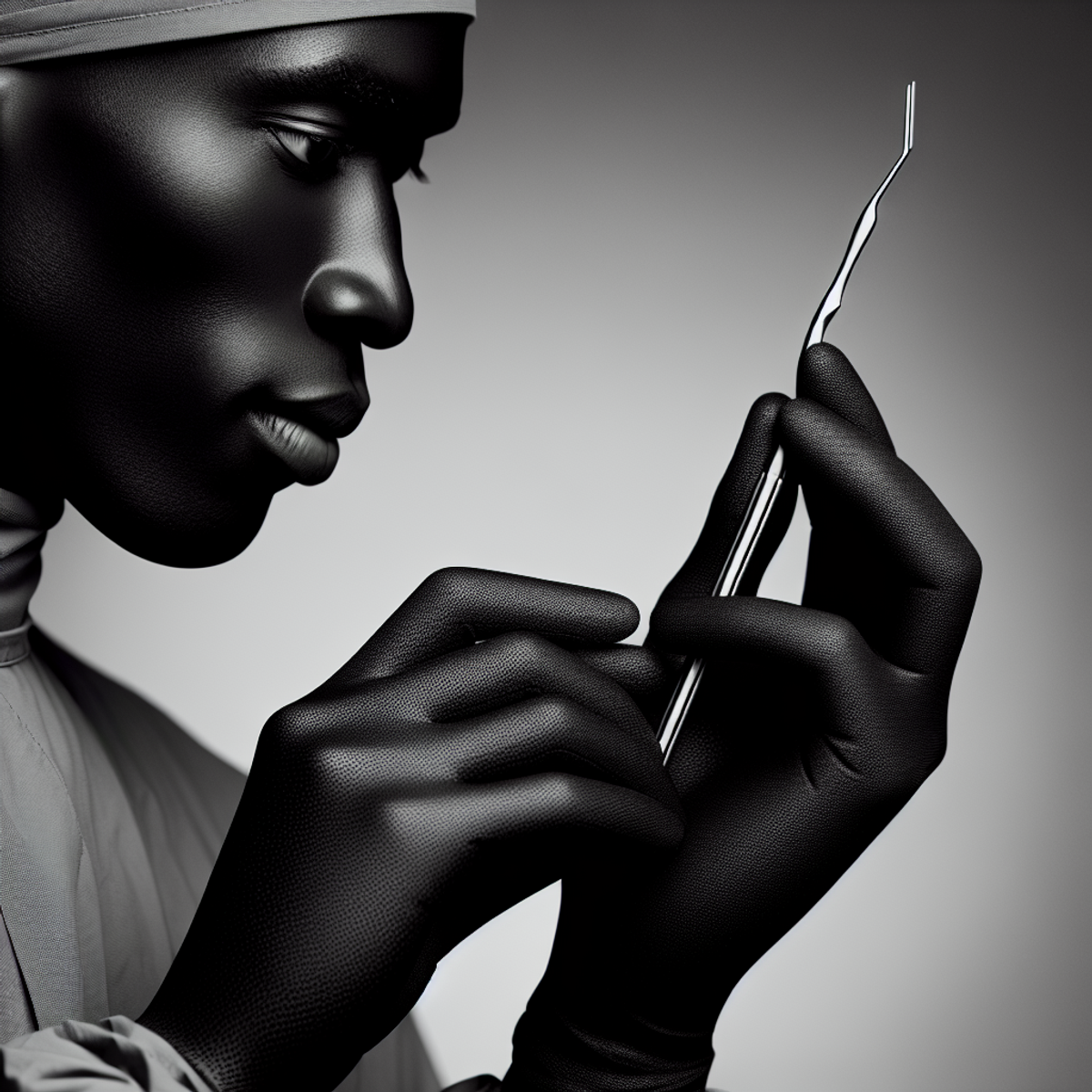How to Choose the Best Plastic Surgeon for Your Procedure

Introduction
Plastic surgery has become increasingly popular in recent years, as more and more people choose to undergo procedures that can enhance their appearance or improve their quality of life. However, it is absolutely crucial to select the best plastic surgeon for your specific procedure in order to ensure a successful outcome. The right surgeon will not only be able to meet your expectations but also prioritize your safety and well-being throughout the entire process.
When it comes to plastic surgery, there are several important factors that you should take into consideration. Each of these factors plays a significant role in helping you choose the surgeon who is most suitable for your needs:
- Board Certification: This indicates that the surgeon has undergone specialized training and has met certain standards of competence in the field of plastic surgery.
- Experience: A surgeon with ample experience in performing the specific procedure you are interested in is likely to have a higher level of expertise and skill.
- Aesthetic Sense: It is important to find a surgeon whose artistic vision aligns with your own aesthetic goals, as this can greatly influence the final results.
- Patient Comfort: A good plastic surgeon should prioritize the comfort and well-being of their patients, ensuring that they feel supported and cared for throughout the entire process.
- Facility Accreditation: The surgical facility where your procedure will be performed should meet certain safety and quality standards, which can be indicated by proper accreditation.
- Personalized Treatment Plans: Every individual is unique, and your surgeon should be able to tailor their approach to suit your specific needs and desires.
- Safety Standards: It is crucial for the surgeon to follow strict safety protocols during every stage of the procedure, minimizing any potential risks or complications.
- Ethics: Choosing a surgeon who upholds high ethical standards ensures that they will always prioritize your best interests over financial gain.
- Professional Reputation: Researching the surgeon’s reputation within the medical community and among previous patients can give you valuable insights into their skills and reliability.
By understanding these key considerations and evaluating potential surgeons based on these criteria, you can make an informed decision and feel confident in your choice.
It is important to remember that while this article provides valuable insights and guidelines, trusting your instincts is equally significant. Establishing a sense of trust and rapport with your potential surgeon is essential. After all, this is a personal decision that should be made based on your own unique needs and preferences.
In this article, we will explore each of these factors in detail, providing you with a comprehensive guide to help you navigate through the process of selecting the best plastic surgeon for your procedure.
So let’s get started and learn more about how to choose the perfect plastic surgeon for you!
1. Board Certification and Professional Memberships
When it comes to choosing the best plastic surgeon for your procedure, one of the most important factors to consider is board certification and professional memberships. These credentials indicate that the surgeon has undergone rigorous training, has met specific standards, and is committed to upholding the highest level of patient care.
Board Certification: A Seal of Approval
Board certification in plastic surgery is a crucial credential to look for when selecting a surgeon. It assures you that the surgeon has completed extensive education, training, and examination in the field of plastic surgery. The American Board of Cosmetic Surgery (ABCS) is one of the leading certifying bodies for cosmetic surgeons. The ABCS requires surgeons to meet strict requirements and demonstrate their proficiency in various cosmetic procedures.
Another widely recognized certifying body is the American Society of Plastic Surgeons (ASPS). Surgeons who are members of ASPS have completed a minimum of six years of surgical training after medical school, with at least three years specifically in plastic surgery. They must also pass comprehensive oral and written exams to achieve board certification.
Experience Matters: Assessing Expertise
While board certification indicates a surgeon’s competence, it’s essential to consider their experience and expertise in performing your desired procedure. Plastic surgery encompasses a wide range of procedures, from breast augmentation to rhinoplasty to facelifts. Each procedure requires specific skills and techniques, which can be honed through years of practice.
When evaluating a surgeon’s experience, there are a few key points to consider:
- Years in Practice: Look for a surgeon who has been practicing for several years. This longevity suggests that they have gained valuable experience and have likely encountered a variety of cases.
- Specialization: Some plastic surgeons specialize in specific procedures or areas of the body. For example, if you’re considering breast augmentation, you may want to seek out a surgeon who has a strong track record and expertise in this particular procedure.
- Case Studies: Request to see before and after photos of previous patients who have undergone the same procedure you’re interested in. Examining these photos will give you a visual representation of the surgeon’s work and help you assess their aesthetic abilities.
- Patient Testimonials: Reading reviews or testimonials from previous patients can provide valuable insights into a surgeon’s bedside manner, communication skills, and overall patient satisfaction. Websites like RealSelf or Healthgrades are great resources for finding patient reviews.
The Power of Professional Memberships
In addition to board certification, professional memberships can also be indicative of a surgeon’s commitment to their field and ongoing education. Membership in organizations such as ASPS or the American Society for Aesthetic Plastic Surgery (ASAPS) demonstrates a surgeon’s dedication to staying current with the latest advancements in plastic surgery.
These organizations often have strict membership criteria and require surgeons to adhere to a code of ethics. Being an active member means that the surgeon is engaged with their professional community, attending conferences, participating in continuing education courses, and exchanging knowledge with their peers.
Columbus Aesthetic Plastic Surgery: Excellence You Can Trust
One notable example of a plastic surgery practice that embodies these standards is [C
3. Aesthetic Sense and Before & After Photos
When choosing the best plastic surgeon for your procedure, it’s important to consider not only their technical skills and experience but also their aesthetic sense. Here are some essential points to keep in mind when evaluating a surgeon’s aesthetic abilities:
Importance of Aesthetic Alignment
It’s crucial to align with a surgeon who shares your aesthetic preferences and understands your vision for the desired outcome. A plastic surgeon’s artistic ability plays a significant role in achieving results that resonate with your personal aesthetic goals.
Before & After Photos as Visual Evidence
Before & after photos are valuable visual tools that can offer insights into a surgeon’s aesthetic sense and proficiency. These images provide tangible evidence of the surgeon’s work and can help you gauge their ability to deliver consistent, high-quality results.
Evaluating Before & After Images
When reviewing before & after photos, pay attention to the following aspects to effectively evaluate a surgeon’s aesthetic capabilities:
- Look for Consistency: Examine multiple sets of before & after photos related to the specific procedure you are considering. Consistency in results, such as improved symmetry, natural-looking outcomes, and overall patient satisfaction, is a positive indicator of the surgeon’s artistic proficiency.
- Assess Diverse Cases: Evaluate before & after images across diverse patient cases, considering variations in body types, facial features, or specific concerns. This assessment can provide a more comprehensive understanding of the surgeon’s versatility and ability to address individualized aesthetic needs.
- Patient Satisfaction: Take note of any testimonials or feedback accompanying the before & after photos. Positive patient experiences and satisfaction with the results can reinforce the surgeon’s capability to understand and fulfill aesthetic goals effectively.
By carefully examining before & after photos with these criteria in mind, you can gain valuable insights into a plastic surgeon’s aesthetic sensibilities and their potential to deliver outcomes that resonate with your preferences.
Remember that while before & after photos serve as an essential reference point, they should be complemented by thorough discussions during consultations to ensure that your individual aesthetic concerns are fully understood and addressed.
4. Patient Comfort and Customer Service
When choosing a plastic surgeon for your procedure, it’s important to think about more than just their skills. Consider the entire experience you’ll have as a patient, including how comfortable you’ll be and the level of service you’ll receive. These factors can make a big difference in your surgical journey:
Board Certification: A Sign of Excellence
One important thing to look for when selecting a plastic surgeon is board certification. This means that the surgeon has completed specific training and met high standards set by an accredited board. For plastic surgery, it’s best to choose a surgeon who is certified by respected organizations like the American Board of Cosmetic Surgery (ABCS) and is a member of the American Society of Plastic Surgeons (ASPS).
The Importance of Supportive Staff and Personalized Care
The environment where your procedure takes place and how the staff treats you can have a major impact on your comfort and satisfaction. During consultations or visits to the facility, pay attention to these things:
- Are the staff members attentive and friendly?
- Do they show empathy towards your concerns?
- Are they focused on meeting your individual needs?
These are all signs of personalized care, which is crucial for a positive experience.
Communication Skills: Key to Success
Good communication between you and your plastic surgeon is essential at every stage of the process. They should be able to:
- Listen carefully to your worries and questions
- Clearly explain the procedure and what to expect during recovery
- Address any uncertainties or fears you may have
By building trust through effective communication, your surgeon can greatly enhance your overall experience.
Remember: prioritizing patient comfort and customer service when choosing a plastic surgeon is essential for a positive surgical journey.
Taking the time to evaluate these aspects will help you make an informed decision that aligns with your needs and preferences as an individual.
5. Operating Facility Accreditation and Anesthetist Qualifications
When choosing the best plastic surgeon for your procedure, the safety and quality of the operating facility and the qualifications of the anesthetist are crucial factors to consider.
Importance of Accreditation:
The surgical facility should be accredited to ensure that it meets specific safety and quality standards. Accreditation indicates that the facility adheres to strict protocols for patient care, equipment, and overall safety measures.
Qualified Anesthetists:
Anesthetists play a vital role in ensuring a safe surgical experience. Their qualifications and expertise directly impact the administration and management of anesthesia during the procedure. If you’re curious about how to become an anesthetist, you can explore resources on how to become a CRNA.
Verifying Accreditation Status:
When researching potential plastic surgeons, inquire about the accreditation status of the surgical facility where the procedure will take place. Ensure that it holds relevant certifications or approvals from recognized organizations or regulatory bodies.
Credentials of Anesthetists:
Inquire about the qualifications and credentials of the anesthetist who will be involved in your surgery. Verify their certifications and professional background to ensure that they have the necessary expertise to handle anesthesia administration effectively.
By prioritizing these aspects, you can enhance the overall safety and success of your plastic surgery procedure.
6. Comprehensive Consultations and Personalized Treatment Plans
When searching for the best plastic surgeon for your procedure, it’s important to prioritize comprehensive consultations and personalized treatment plans. These factors greatly contribute to a successful outcome. Here are some key points to consider:
1. Value of Thorough Consultations
Thorough consultations with the plastic surgeon are essential for establishing a clear understanding of your cosmetic goals and expectations. During these consultations, the surgeon should:
- Take the time to listen to your concerns
- Answer any questions you may have
- Provide detailed information about the procedure
This process allows you to gain confidence in the surgeon’s expertise while also building a rapport with them.
2. Discussion of Potential Risks
A reputable plastic surgeon will openly discuss potential risks associated with the procedure. It’s important to have a realistic understanding of both the benefits and potential complications of the surgery.
3. Tailoring Personalized Treatment Plans
Each patient is unique, and their cosmetic needs vary. A skilled plastic surgeon will tailor a personalized treatment plan that addresses your specific goals and concerns. This individualized approach ensures that the surgical plan aligns with your desired outcome, taking into account factors such as your anatomy, skin type, and overall health.
4. Questions to Ask
When consulting with a plastic surgeon, it’s beneficial to come prepared with a set of questions that can help you gather more information about their approach and qualifications. Some valuable questions to consider asking during the consultation process include:
- What are your qualifications and experience in performing this specific procedure?
- Can you provide before & after photos of patients who have undergone similar procedures?
- What are the potential risks or complications associated with this surgery?
- How do you customize treatment plans based on individual patient needs?
- What is your approach to managing post-operative care and addressing any concerns after the procedure?
By asking these questions, you can gain insight into the surgeon’s expertise, approach to patient care, and commitment to delivering personalized treatments.
In summary, thorough consultations and personalized treatment plans are pivotal in selecting the right plastic surgeon for your needs. These aspects reflect the surgeon’s dedication to understanding your goals, prioritizing patient safety, and customizing an effective treatment strategy tailored specifically for you.
7. Safety Standards, Ethics, and Transparent Disclosures
When choosing a plastic surgeon, it’s crucial to prioritize safety. You want to be confident that the surgeon you choose follows high safety standards and ethical practices every step of the way. In this section, we’ll explain why safety matters, the importance of ethics, and why transparent disclosures are essential when selecting a plastic surgeon.
Why Safety Comes First
Selecting a plastic surgeon who prioritizes safety is extremely important. A reputable surgeon will take all necessary precautions to minimize risks and ensure a safe surgical experience. Here are some key points to consider when researching potential surgeons:
- Check for certifications: Confirm that the surgeon is board-certified in plastic surgery by organizations such as the American Board of Plastic Surgery (ABPS). This certification indicates that the surgeon has undergone rigorous training and has met specific standards of competence.
- Assess facility accreditation: The surgical facility where your procedure will be performed should be accredited by recognized organizations such as the Joint Commission on Accreditation of Healthcare Organizations (JCAHO) or the American Association for Accreditation of Ambulatory Surgery Facilities (AAAASF). These accreditations ensure that the facility meets strict safety standards.
The Significance of Ethics and Openness
In addition to safety standards, it’s vital to choose a surgeon who follows ethical practices and provides transparent disclosures. Here’s what you should look for:
- Honest communication: A trustworthy plastic surgeon should be open and honest about potential outcomes, risks involved, and realistic expectations. They should provide you with all relevant information to help you make an informed decision about your procedure.
- Identification of conflicts of interest: It’s important for your surgeon to disclose any conflicts of interest that may influence their recommendations or decisions regarding your treatment plan. This includes revealing any financial arrangements with equipment manufacturers or pharmaceutical companies.
How to Make an Informed Decision
To ensure transparency and make the best choice possible, here are some steps you can take:
- Review legal history: Conduct a background check on the surgeon to determine if they have any legal history or disciplinary actions. This information can provide valuable insights into their professional conduct and help you assess their credibility.
- Seek patient testimonials: Reading reviews and testimonials from previous patients can give you a better understanding of the surgeon’s reputation and patient satisfaction. Look for consistent positive feedback regarding safety, ethics, and transparency.
By focusing on safety standards, ethical practices, and transparent disclosures during your selection process, you can increase the chances of choosing a plastic surgeon who truly cares about your well-being. Always remember that safety should be your top priority when undergoing any surgical procedure.
8. Trust Your Instincts: Personal Rapport and Professional Reputation
When choosing the best plastic surgeon for your procedure, trust is key. You should feel comfortable with the surgeon and have confidence in their abilities. This trust can be established through both personal rapport and a strong professional reputation.
Personal Rapport
Having a good relationship with your surgeon is crucial for a successful outcome. You should feel at ease talking to them about what you want, any concerns you have, and what you expect from the procedure. A skilled surgeon will take the time to listen, understand your desires, and address any fears you may have.
During consultations, pay attention to how well you connect with the surgeon. Do they make an effort to understand you and treat you with respect? Do they answer your questions fully and patiently? Trust your instincts when assessing the personal rapport with the surgeon. If something doesn’t feel right or you don’t feel a connection, it may be best to consider other options.
Professional Reputation
In addition to personal rapport, a strong professional reputation is another important factor to consider when choosing a plastic surgeon. A reputable surgeon should have positive feedback from both patients and colleagues in the medical community. Here are some ways to evaluate a surgeon’s professional reputation:
- Patient Reviews: Look for online reviews or testimonials from previous patients. Pay attention to overall satisfaction levels and specific comments about the surgeon’s skills, approach, and bedside manner.
- Referrals: Ask trusted friends, family members, or healthcare professionals who have undergone plastic surgery for recommendations. Their firsthand experiences can provide valuable insights into a surgeon’s reputation.
- Professional Associations: Check if the surgeon is a member of reputable professional organizations such as the American Society of Plastic Surgeons (ASPS) or the American Board of Plastic Surgery (ABPS). Membership in these organizations often indicates adherence to high ethical standards and ongoing education.
- Recognition and Awards: Research whether the surgeon has received any prestigious awards or recognition in the field of plastic surgery. These honors can be a sign of their expertise and contributions to the industry.
By considering both personal rapport and professional reputation, you can make a more informed decision when choosing a plastic surgeon for your procedure.
In conclusion, selecting the best plastic surgeon for your procedure requires careful consideration of various factors. It’s crucial to prioritize personal rapport and professional reputation when making your decision. A surgeon who listens to your concerns, communicates effectively, and makes you feel comfortable will likely provide a positive surgical experience.
However, it’s equally important to trust your instincts. If something doesn’t feel right or you have any doubts, it’s essential to explore other options. Plastic surgery is a personal journey, and feeling confident in your choice of surgeon is vital for achieving the desired results.
Remember, this is your body and your well-being at stake. Take the time to research, ask questions, and consult with multiple surgeons before making a final decision. By doing so, you can increase the likelihood of finding the best plastic surgeon who aligns with your goals and values.
Trust yourself, trust the process, and trust that you deserve the best possible outcome from your plastic surgery experience.










